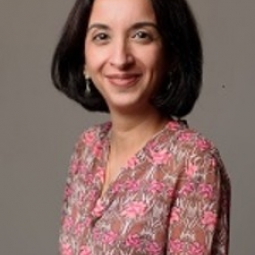- Pavri, F. 2016. Stakeholder perceptions and attitudes in freshwater resources management: Lessons from survey data on environmental conditions at Sebago Lake, Maine. Northeastern Geographer, V 8: 55-70.
- Pavri, F., A. Springsteen, A. Dailey and J. MacRae. 2013. Land use and socioeconomic influences on a vulnerable freshwater resource in northern New England, United States. Environment, Development and Sustainability, V 15 (3), 625-643.
- Pavri, F., A. Dailey and V. Valentine. 2011. Integrating multispectral ASTER and LiDAR data to characterize coastal wetland landscapes in the northeastern United States. Geocarto International (special issue on Remote Sensing of Coastal System Dynamics), V26 (8): 647-661.
- Pavri, F. 2011. Institutional contexts, forest resources, and local communities in western India: a gendered analysis. Journal of Resources, Energy and Development (special issue on Forests of South Asia), V8 (2): 101-112.
- Pavri, F. 2010. Urban expansion and sea-level rise related flood vulnerability for Mumbai (Bombay) India using remotely sensed data, in Geospatial Techniques in Urban Hazard and Disaster Analysis, edited by P. Showalter and Y. Lu, Springer-Verlag
Firooza Pavri, PhD
- Associate Dean of the Muskie School of Public Service
- Professor of Geography
Education
- PhD, Geography, Ohio State University
- MA, Geography & Planning, University of Toledo
- BA, Geography, University of Bombay
Current Courses
Courses Taught
- ANT/GEO 105: Society, Environment and Change
- GEO 103: Human-Environmental Geography
- GEO 104: World Regional Geography
- GEO 209: Land Use Planning
- GEO 285: Global Environmental Issues & Sustainability
- GEO 305/605: Remote Sensing
- GEO 308/608: GIS Applications I
- GEO 320/520: Conservation of Natural Resources
- GEO 350: Geography of International Development
Research Interests
Firooza teaches and does research in the area of environmental geography, with a focus on society-environment interactions, natural resource conservation & policy, sustainable development, and geospatial technologies, including remote sensing and GIS. Her research uses remote sensing and other geospatial tools and techniques to monitor landscape changes across wetland, freshwater, urban, and forested ecosystems, both in the United States and India. Of recent, she has also been researching some of the socio-economic, environmental and policy issues related to sustainable wind energy production. NASA support has enabled Firooza to collaborate with Geography-Anthropology students through fellowships, research assistantships, and summer internships at NASA Centers.
Firooza Pavri is Professor of Geography and Associate Dean of the Muskie School of Public Service at the University of Southern Maine (USM), where she works at the intersection of geography, public policy, and community engagement. Trained as a geographer with expertise in geospatial technologies and satellite remote sensing, her research examines how landscapes change over time from climate variability, economic development, and resource use—and how communities adapt to those changes.
Dr. Pavri’s work is grounded in long-term, place-based research that integrates Earth-observation data with social science methods. She has led and collaborated on projects across Greenland, Iceland, the United States, and India, combining satellite data, landscape metrics, and participatory research with farmers, lake stewards, and local stakeholders. Her recent work in South Greenland and Iceland focuses on climate-related vulnerabilities in sub-Arctic sheep-farming communities.
She is the co-author of articles and books on environmental change, including Wetland Environments: A Global Perspective. Her latest co-authored book published by Wiley IEEE, Wind Energy Landscape: Principles, Techniques, History, synthesizes the science, technology, history, public policy and visual dimensions of wind energy development, offering a globally comparative and landscape-based framework for understanding this sector.
In addition to her research, Dr. Pavri serves in a leadership role in higher education at USM. As Associate Dean of the Muskie School of Public Service, she currently helps guide interdisciplinary programs spanning geography & anthropology, policy, planning & management, public health, and tourism & hospitality. She recently completed a term as President of the New England–St. Lawrence Valley Geographical Society and serves on advisory boards related to environmental stewardship and nonprofit governance.
Dr. Pavri teaches courses in society–environment geography, geospatial technologies, land-use planning, and global environmental change. She is deeply committed to student research, experiential learning, and translating geospatial science into tools that support public decision-making and community resilience.
See here for a list of Dr. Pavri’s recent publications.
Selected Publications
Books
- Aber, J., S. Aber and F. Pavri. 2015. Windscapes: A Global Perspective on Wind Power. Multi-Science Publishers: Essex, UK, p. 242.
- Aber, J., F. Pavri, and S. Aber. 2012. Wetland Environments: A Global Perspective. Wiley-Blackwell, p. 437.
Recent Publications
- Pavri, F. and D. Farrell. 2020. Arctic landscape transitions: Ice cap and terrestrial margins across Hofsjökull, Iceland. Physical Geography, DOI: 10.1080/02723646.2020.1839212.
- Pavri, F. and T. Lynch. 2020. The changing landscape of Maine's Presumpscot watershed. In R.M. Sanford and W.S. Plumley (Eds.), River Voices: Perspectives on the Presumpscot. North Country Press.
- Pavri, F., and L. Silka. 2020. Guest Editor for Maine Policy Review: Maine’s Bicentennial, V29(2).
Education
- PhD, Geography, Ohio State University
- MA, Geography & Planning, University of Toledo
- BA, Geography, University of Bombay
Current Courses
Courses Taught
- ANT/GEO 105: Society, Environment and Change
- GEO 103: Human-Environmental Geography
- GEO 104: World Regional Geography
- GEO 209: Land Use Planning
- GEO 285: Global Environmental Issues & Sustainability
- GEO 305/605: Remote Sensing
- GEO 308/608: GIS Applications I
- GEO 320/520: Conservation of Natural Resources
- GEO 350: Geography of International Development
Research Interests
Firooza teaches and does research in the area of environmental geography, with a focus on society-environment interactions, natural resource conservation & policy, sustainable development, and geospatial technologies, including remote sensing and GIS. Her research uses remote sensing and other geospatial tools and techniques to monitor landscape changes across wetland, freshwater, urban, and forested ecosystems, both in the United States and India. Of recent, she has also been researching some of the socio-economic, environmental and policy issues related to sustainable wind energy production. NASA support has enabled Firooza to collaborate with Geography-Anthropology students through fellowships, research assistantships, and summer internships at NASA Centers.


